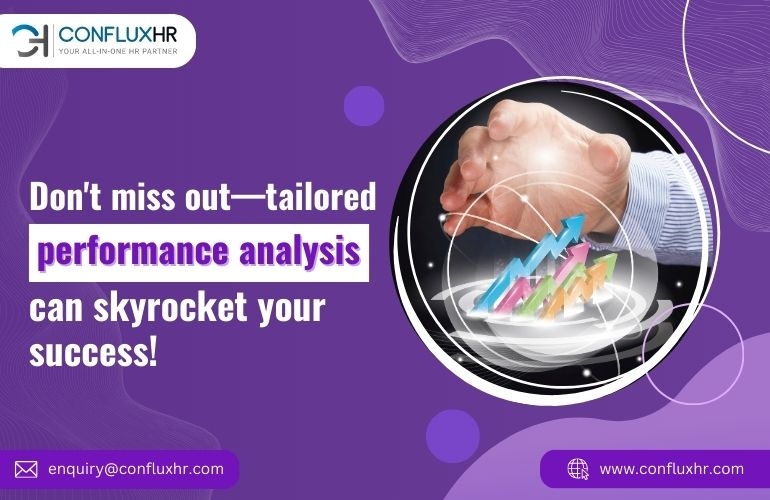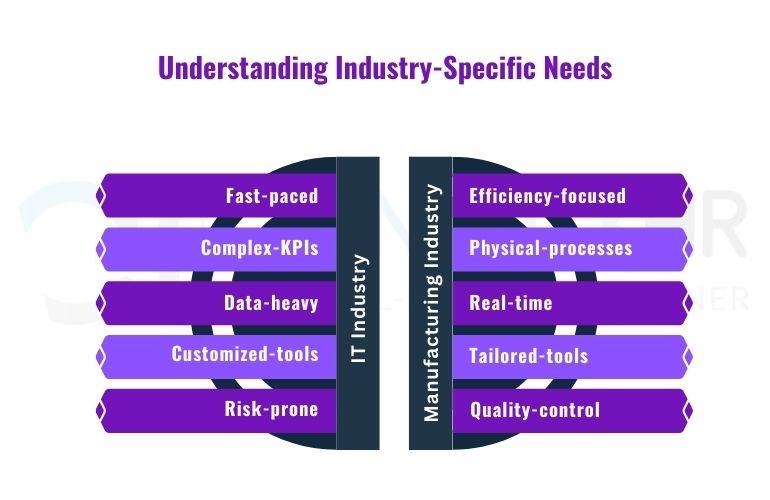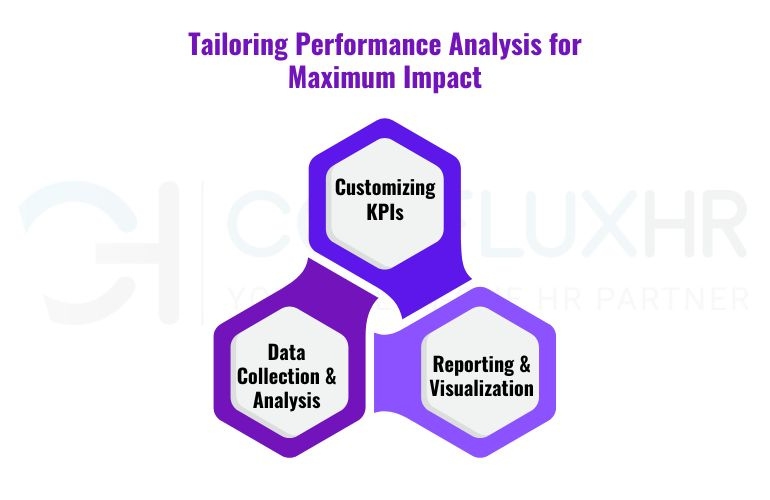Performance analysis is not a luxury in the cutthroat business world of today—it is a need. But here’s the catch: not all industries are created equal, and neither should be their performance analysis strategies. The idea of one-size-fits-all might sound appealing, but when it comes to optimizing performance, customization is key.
Performance analysis helps businesses measure, understand, and improve their processes. But the KPIs (Key Performance Indicators) that work wonders in one industry might not be as effective in another. Tailoring your performance analysis to the unique challenges and goals of your specific industry can unlock new levels of efficiency, productivity, and success. Let’s dive into how this customization works across two very different sectors: IT and Manufacturing.
Section 1: Understanding Industry-Specific Needs
IT Industry:
The IT sector is fast-paced, constantly evolving, and driven by innovation. This creates a unique set of challenges when it comes to performance analysis. The KPIs in IT often revolve around uptime, system performance, customer satisfaction, and security compliance. But these indicators can be complex to monitor and analyze due to the sheer volume of data and the rapid changes in technology.
To stay ahead, IT companies need customized analytics tools that can handle real-time data, integrate with existing systems, and provide insights that are directly relevant to their operations. A generic tool might miss the nuances of an IT environment, leading to missed opportunities and potential risks.
Manufacturing Industry:
On the other hand, the manufacturing industry has its own set of critical KPIs. These include production efficiency, defect rates, downtime, and supply chain performance. The challenges here are different from IT—manufacturing requires a focus on physical processes, machinery, and raw materials.
Real-time data and process optimization are crucial in manufacturing. A slight delay in analyzing performance data can lead to costly disruptions. This industry benefits from performance analysis tools that are customized to monitor and optimize production lines, manage inventory levels, and ensure quality control.
Section 2: The Transition from IT to Manufacturing
You might wonder, can the lessons learned from IT performance analysis be applied to manufacturing? The answer is a resounding yes! While the industries are different, the core principles of performance analysis—data collection, KPI monitoring, and continuous improvement—are universal.
For example, IT companies have long used real-time monitoring tools to keep tabs on system performance. These tools have now evolved to cater to the needs of manufacturing, where real-time data can mean the difference between meeting or missing a production target.
A successful transition often involves adapting existing tools and methodologies to fit the new context. For instance, a case study could highlight how a manufacturing company implemented an IT-style dashboard to monitor production in real-time, reducing downtime by 20%.
Section 3: Tailoring Performance Analysis for Maximum Impact
Customizing KPIs:
The first step in any tailored performance analysis is to identify the right KPIs for your industry. This might sound obvious, but it’s easy to get caught up in tracking metrics that don’t truly reflect your business goals. Customization means prioritizing KPIs that matter most to your specific processes.
For IT, this could mean focusing on system reliability and user satisfaction, while manufacturing might prioritize production yield and quality control. The right tools can help automate the monitoring of these KPIs, providing real-time insights that drive better decision-making.
Data Collection and Analysis:
Data is the backbone of performance analysis, but not all data is created equal. Industry-specific data sources are essential for gathering the information that matters most to your business. In IT, this might involve logs from various software applications, while manufacturing would focus on data from sensors and production lines.
Effective data collection is just the beginning. Real-time analysis allows businesses to react quickly to potential issues, preventing small problems from becoming big ones. Customized analysis tools can sift through mountains of data to find the insights that will help you optimize your performance.
Reporting and Visualization:
Once you have your data, the next step is to make it understandable. Customized dashboards and reports can turn complex data into clear, actionable insights. Visualization tools are especially powerful—they can highlight trends, pinpoint areas of concern, and make it easier for decision-makers to see the bigger picture.
For both IT and manufacturing, a well-designed dashboard can be the difference between confusion and clarity. Custom reports tailored to the needs of your industry can enhance decision-making, helping you stay ahead of the competition.
Section 4: Benefits of Tailor-Made Performance Analysis
So, what’s the payoff? Tailored performance analysis leads to improved efficiency, reduced downtime, and higher productivity. By focusing on the KPIs that matter most to your industry, you can make informed decisions that drive business growth.
Customized analysis tools also enhance decision-making by providing industry-specific insights. This not only helps in day-to-day operations but also contributes to long-term business sustainability. Investing in tailored solutions today can position your business for success in the future.
Conclusion
The trend toward industry-specific performance analysis is only going to grow. As businesses become more complex and data-driven, the need for customized solutions will become even more critical. Whether you’re in IT, manufacturing, or any other industry, tailoring your performance analysis is the key to unlocking new levels of success.
Ready to take your business to the next level? Explore customized performance analysis solutions that fit your industry’s unique needs and start reaping the benefits today.





